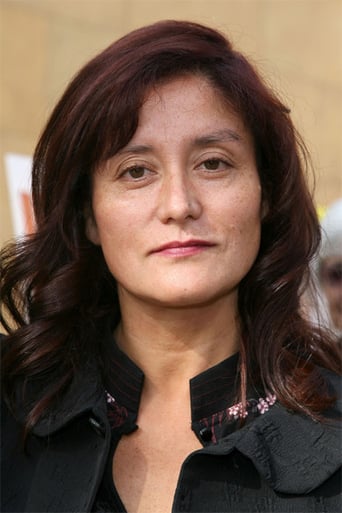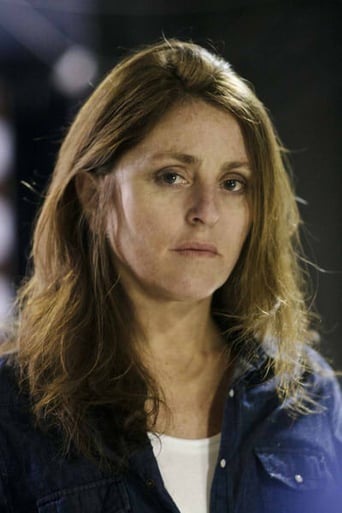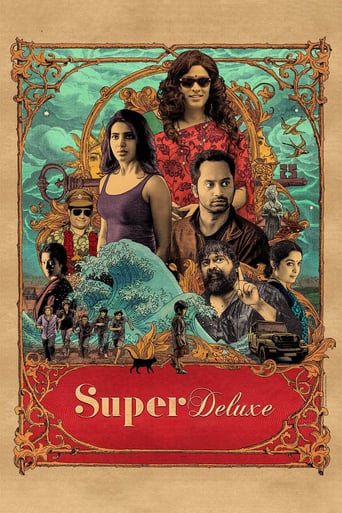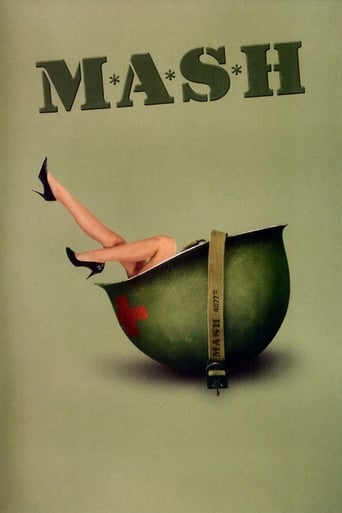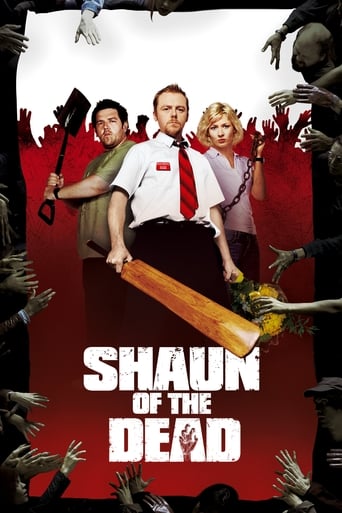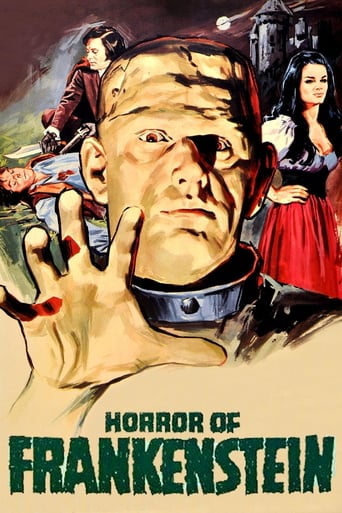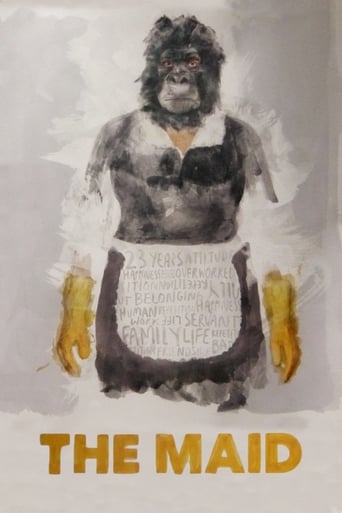
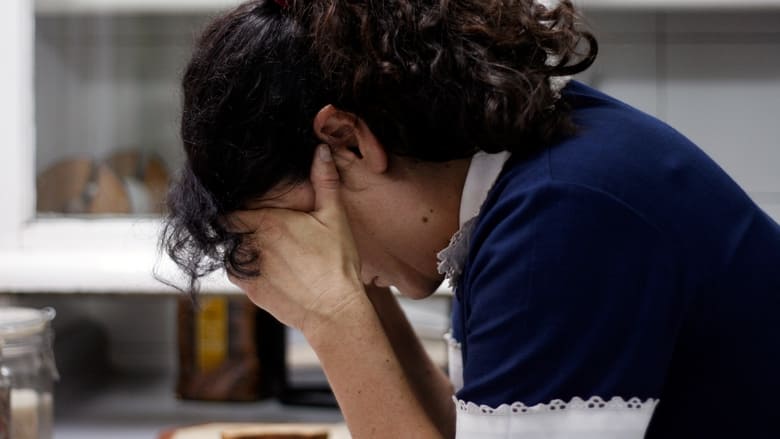
The Maid (2009)
Raquel has been the live-in housekeeper for a kind, reasonably wealthy family for half her life, and the joyless repetition of the job has begun to take its toll. Increasingly dependent on painkillers, Raquel resorts to pranks and childish avoidance to antagonize the family’s college-age daughter and a procession of new servants, all in the hopes of protecting her precarious power within the home. Her antics successfully push everyone away, until new maid Lucy actually pushes back.
Watch Trailer
Cast
Similar titles

Reviews
Don't listen to the negative reviews
Don't listen to the Hype. It's awful
This movie feels like it was made purely to piss off people who want good shows
This is one of the best movies I’ve seen in a very long time. You have to go and see this on the big screen.
This film from Chile portrays the lonely life of a maid and several of the complex interpersonal relationships in her life. We get an intimate look into how she relates to her employers and their kids as well as new maids coming in to help her. Her time as a maid has made her part of the family and she's very possessive of that. A wonderful performance by the lead actress which won her a Special Jury Prize for Acting - World Cinema Dramatic at Sundance. The film also won the Grand Jury Prize for World Dramatic as well as being nominated for a Golden Globe for Best Foreign Language Film. What looks like a downer of a movie is actually a feel-good film that is definitely well worth the time!7.2 / 10 stars--Zoooma, a Kat Pirate Screener
It's just so hard to find good help these days. Just ask the Valdes family, whose live-in maid of twenty-three years is quickly becoming a veritable case-study in passive-aggressive behavior.Forty years old, with no boyfriend, husband or children of her own, Raquel (the award-winning Catalina Saavedra) clings to her life with the Valdes with all the tenacity of a drowning sailor holding onto a rope. Whenever the family tries to hire someone to help her with her work, Raquel goes after the interloper with an understated viciousness bordering on psychosis. This is her territory, and she isn't about to yield a single inch of it if she can at all help it.Sebastian Silva's Chilean feature "The Maid" could easily have devolved into a class-war screed, with Raquel as the representation of the downtrodden working classes and the Valdes family the embodiment of the unfeeling social elite exploiting those workers. Instead, we get a much more nuanced and subtle look at the gulf that separates the haves from the have-nots in society. For Raquel is hardly an inherently noble figure, what with her petulance, her petty jealousies and her callousness towards those she feels are a threat to her. Similarly, the Valdes's appear to be genuinely nice people (especially the mother, well played by Claudia Celedon) who go the extra mile to make Raquel's life a comfortable one and try to make her feel like a member of their family. The problem is that Raquel has become too dependent on this extended family for her own happiness (we only ever see her talking on the phone to her actual mother). Indeed, it takes another maid (Mariana Loyola) - a free-spirited young Peruvian who takes her job seriously but doesn't allow it to define who she is - to finally break through Raquel's emotional armor, which is the first step in Raquel's beginning to loosen up and concentrate on cultivating her own identity and happiness for a change. We sense in the end that this journey to self-awareness is going to be a long and arduous one for Raquel, but the movie leaves us sensing she is more likely than not going to complete that journey.Silva has directed the film in a totally naturalistic style, making us feel as if we are eavesdropping on the day-to-day life of this household. There's even a bit of dark humor in its depiction of the "maid wars" to go along with all the emotional sturm-und-drang and domestic conflict.Though there isn't a weak acting job among the lot of them, it is Saavedra's tour-de-force performance as Raquel that truly stands out. Shy and self-effacing one moment, she is sly and aggressive the next, and Saavedra never lets us see the mechanics of the transitions. It is a seamless piece of work that merited the many accolades it received in festivals around the world.
Raquel is a house keeper for an upper class,Chilean family who has worked for them for twenty plus years,and is showing signs of wearing down with age (she's only 41,but looks & acts much older). Her bosses, Pilar & Mundo decide to take on a second house keeper,but Raquel won't hear of it. When they do hire a young woman,and later an older one,Raquel makes it tough for them,resulting in their either quitting or being outright fired. When they try a third time with a young woman named Sonia,who has a kind heart that somehow creeps into Raquel's tough exterior,she finds out things about herself that she didn't know before. Sebastian Silva (La Vida Me Mata)directs this drama,with some nice black comedy touches,from his own original screenplay,a nicely layered tale of a middle aged woman who is just becoming to come out of her shell. Catalina Saavedia (star of Silva's La Vida Me Mata)is Raquel,a woman who is content with things remaining the same. Claudia Celedron is Pilar,and Alejandra Goic is Mundo,Raquel's bosses,who are depicted as kind hearted,but still sort of bourgeois buffoons. Anita Reeves is Sonia,the domestic that is probably the first to treat Raquel as a social equal. Look out for Andrea Garcia Huidobro as Pilar & Mundo's eldest daughter,Camila that nearly steals the show. The original running time of this fine film is 115 minutes,but sadly the American prints are trimmed by twenty minutes (hopefully,the film's eventual DVD release will contain the original 115 minute cut). Spoken in Spanish with English subtitles. Not rated by the MPAA,this film contains rude language,nudity & adult content.
All I knew was that it was a story about a live-in housekeeper/nanny who did not look too happy in the poster image. I also knew that things are complicated when you have help in the household because I am from India where part-time and full-time help are as common as a common sparrow - you notice it only when it makes too much noise. In the very first scene, Raquel, the maid, looks up from her plate at the kitchen table: her perch, her cage, her refuge. She looks straight at the camera and the spectators find themselves being stared down. Raquel seemed to be saying, "you watch, I'll show you what I can do!" and, "welcome to my life, ever see it from this side?" and because she was in uniform, she seemed to be speaking for all maids all over the world, "it's not funny!" I loved that moment. It spoke volumes. After more than two decades of her most youthful years used up cleaning after the kids, cooking, serving, and staying out of the way yet available when needed, Raquel is spent. Her symptoms include bad headaches, spells of dizziness and a perpetual glowering, smoldering expression, passive-aggressive to say the least. The feverish camera movements are synchronized perfectly with Raquel's perspective and Silva's intentions: to make us appreciate her perspective, the ascent and descent of her everyday life. Rising every morning before everyone else, showering, preparing breakfast and snacks for the kids, sending them to school, serving coffee in bed to her masters, vacuuming, scrubbing, laundering, popping pills as she goes along, and then one day finally falling down the stairs in a fainting spell. It had to be that or I was sure she was going to kill someone. If looks could kill, hers surely would have. Driven by the fear (anger and hurt, really) of losing her "family" spot or being "replaced" by a younger more energetic type, Raquel had started showing signs of abnormal and anti-social behavior. When the decision to hire a new maid is finally announced, it is received as nothing less than a declaration of war. It's betrayal, blackball, and banishment, and since Raquel apparently has no where else to go, she fights for what she believes is hers alone. Locking the new maids out of the house, using liberal doses of sarcasm, hiding food from the kids, scrubbing bathtubs with Clorox each time the new maids shower in it even getting rid of the new kitten who would seemed to be threatening to take her place in receiving whatever little love and affection she gets from the kids. Silva never lets us decide who is going to win.The first additional help hired is a young Peruvian girl who probably symbolizes the current reality in big cities such as Santiago where many Peruvians work as housemaids. Sarcasm directed at the new arrival highlights the intercultural tension present just below the surface of things: "So, you're obviously going to feed Peruvian fare to the family!" This continues for a while until, of course, the good-natured Lucy shows up, and, little by little, wins Raquel's friendship and heart, and provides the opportunity for a dignified exit to all concerned. Sebastián Silva managed to make me laugh about a dark subject by capturing the human elements out of a sea of depressing and gloomy facts: an unorganized, unaccounted for, underpaid, overworked, silent, oft-abused and more-oft simply ignored group of workers. The dark uniform with white collar and front plastic zipper is a great touch. It helps eliminate any tell-tale signs of the life and context of the donner and provides an even and nameless exterior soothing any guilt the employer might harbor. I kept shifting in my seat trying to get comfortable and realized later that perhaps my unease had to do with the fact that Silva reminded me about how socio-economic differences and race play themselves out in reality, about how people are most comfortable within the circle of their own class (when Lucy takes Raquel home to spend Christmas together), how class differences alienate and isolate, and how they are simply there, that's all there is to it. These days, most middle- class families that hire domestic help get part-time help to cook, clean, do laundry and dusting so that the masters can go to work and not have to worry about it all when they get home tired after a day's work. Many Westerners would be less able to relate to this film for lack of experience in this area. Many others would. For it's not just in countries like Chile and India that there is domestic help. We have it here in the US as well. Raquel, being a live- in maid, though, complicates matters a lot. A live-in maid suggests that she is working for a wealthier family who can afford to have someone provide a gentle wake-up call in the morning with coffee in bed. Raquel does not go home to a family (remember the heart- wrenching scene when she cries uncontrollably while talking to her mother we never see), she does not have a life of her own or hobbies to pursue during her time off, and she does not know how to (cannot) get herself out of it. While Raquel is considered "family" by her employers — Pilar certainly makes an effort to treat her with kindness and concern — the subtitle of the movie reads "she's more or less family." In that euphemism resides, in my humble opinion, the core of this dark comedy. After the film, as we were walking back to the parking garage on 2nd street, Katharine remarked (I paraphrase), "you know, I read somewhere that after the film was made, the director's real maid saw it and took off, deciding to get a (new) life!" For this 30-year old director the film has earned a lot of fame, and for his maids, it has earned freedom,
